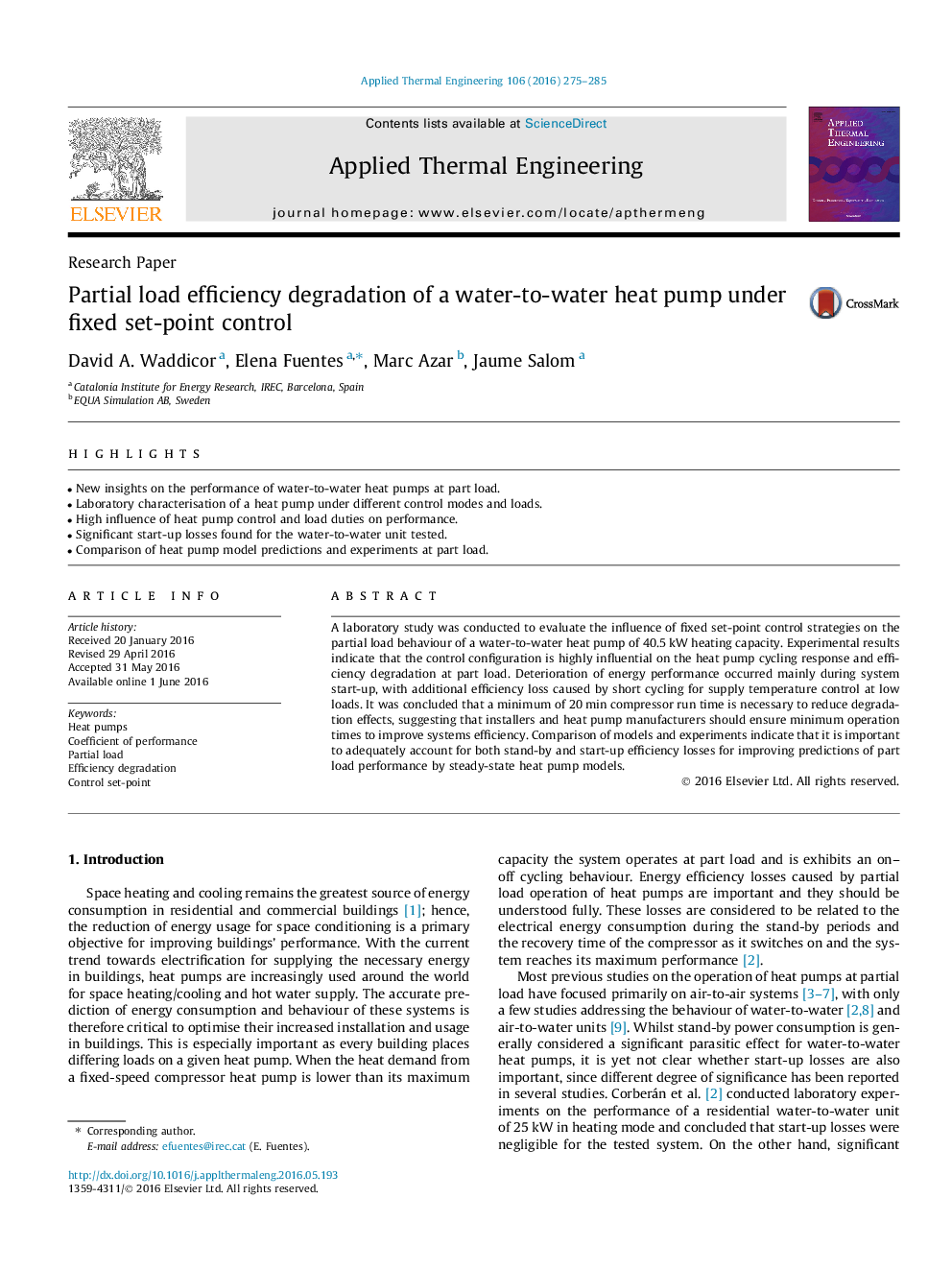| Article ID | Journal | Published Year | Pages | File Type |
|---|---|---|---|---|
| 7047424 | Applied Thermal Engineering | 2016 | 11 Pages |
Abstract
A laboratory study was conducted to evaluate the influence of fixed set-point control strategies on the partial load behaviour of a water-to-water heat pump of 40.5Â kW heating capacity. Experimental results indicate that the control configuration is highly influential on the heat pump cycling response and efficiency degradation at part load. Deterioration of energy performance occurred mainly during system start-up, with additional efficiency loss caused by short cycling for supply temperature control at low loads. It was concluded that a minimum of 20Â min compressor run time is necessary to reduce degradation effects, suggesting that installers and heat pump manufacturers should ensure minimum operation times to improve systems efficiency. Comparison of models and experiments indicate that it is important to adequately account for both stand-by and start-up efficiency losses for improving predictions of part load performance by steady-state heat pump models.
Related Topics
Physical Sciences and Engineering
Chemical Engineering
Fluid Flow and Transfer Processes
Authors
David A. Waddicor, Elena Fuentes, Marc Azar, Jaume Salom,
